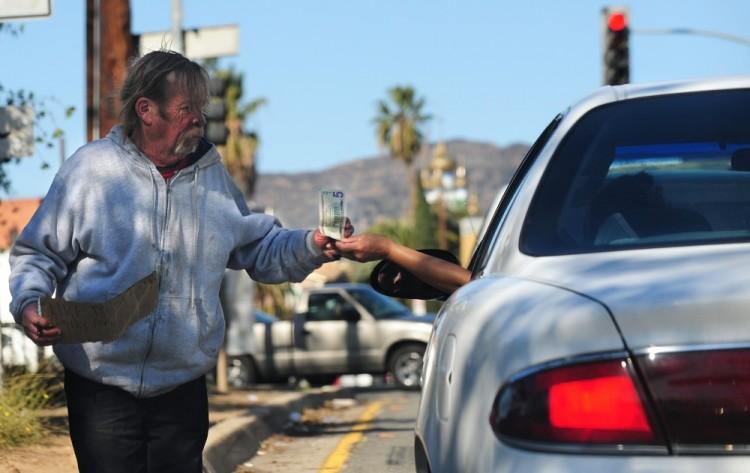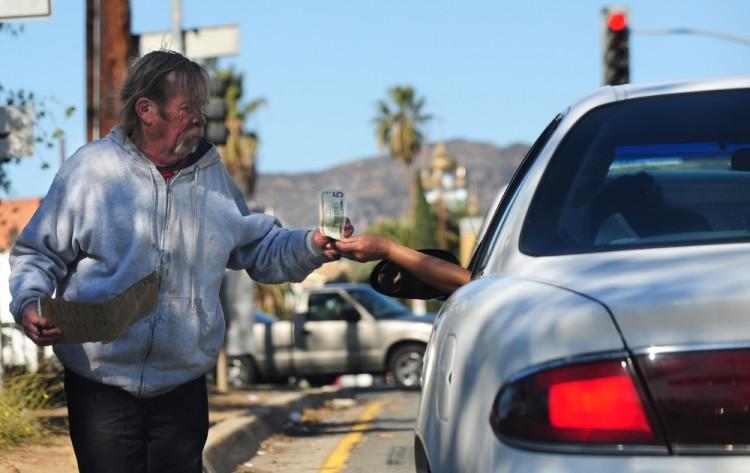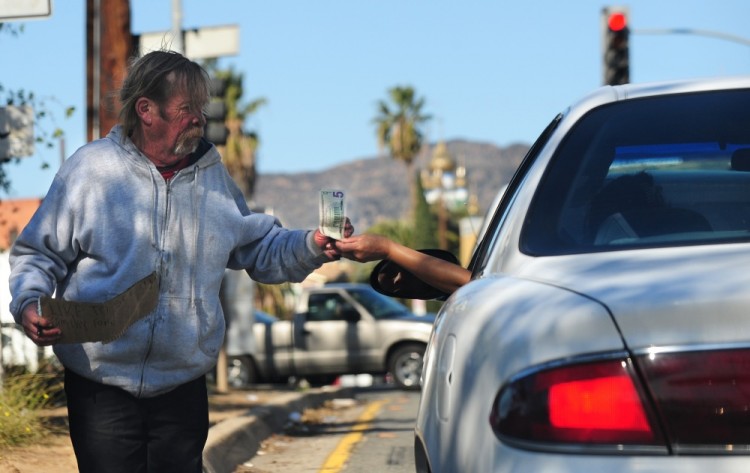The Great Recession officially ended in 2009, but researchers say the residual effects may linger for years to come. According to a recent report, life is getting harder for America’s poor and their numbers are growing, as more of the middle class is expected to soon be feeling the pinch of poverty.
Researchers at Indiana State University say the number of Americans living in poverty increased as much as 27 percent between 2006 and 2010, and will continue to rise in the coming years as more people are left without work.
The report, “At Risk: America’s Poor During and After the Great Recession,” found that the economic downturn produced not only high unemployment rates, but also record numbers of long-term unemployment, making it likely that the ranks of the “new poor” and “near poor” will continue to grow.
Although the official rate of unemployment is declining, analysts say that much of this apparent progress is a result of many adults giving up on the job search.
“If the long-term unemployed lose their unemployment insurance benefits before the economy produces enough well-paying jobs to approach full employment, the ranks of the new poor will steadily swell between now and 2017,” stated researchers.
The Indiana State study was prepared at the request of talk show host and political commentator Tavis Smiley as a foundation for the national Poverty Tour he conducted last summer. On Jan. 12, Smiley hosted a panel discussion on C-SPAN to discuss poverty in America in context to this report.
“It’s pretty clear from this report that the new poor are the former middle class,” said Smiley, referring to the latest U.S. census numbers showing one in two Americans either in poverty or heading toward poverty.
“There has been an idea for a long time that the poor are some kind of special group, special demographic—that they are over there somewhere,” added author and panel member Barbara Ehrenreich. “We have to face that we’re not talking about someone else. We’re talking about almost half of Americans are struggling.”
But analysts say it could have been much worse. According to the report, congressional policy initiatives aimed at protecting the well-being of low-income Americans successfully managed to soften the blow caused by the Great Recession.
However, stimulus funds have been spent, and researchers say that federal deficits are creating pressures to control spending, which may adversely affect the poor. Financially struggling states are cutting back on programs such as Medicaid and Temporary Assistance to Needy Families, and researchers say more states are likely to follow suit, especially if the cash-strapped federal government pushes more responsibility to them.
“Promoting sustained economic growth while at the same time protecting the well-being of the poor, the near poor, and the new poor is the central challenge for the leaders of the United States,” said Indiana State researchers.
Another hurdle, according to the report, is the concerns about waste, fraud, and abuse of social services. While evidence suggests that administrative and mismanagement problems play a larger role in erroneous spending than fraud by program recipients, researchers said there is additional risk that elected officials will respond hastily with reforms of the safety net that may put low-income Americans at additional risk.
“Poor people are not moochers and welfare queens, as some would like you to believe,” said Smiley. “Our neighbors, colleagues, and families are all struggling. It’s a problem all of us need to solve together, right now.”







